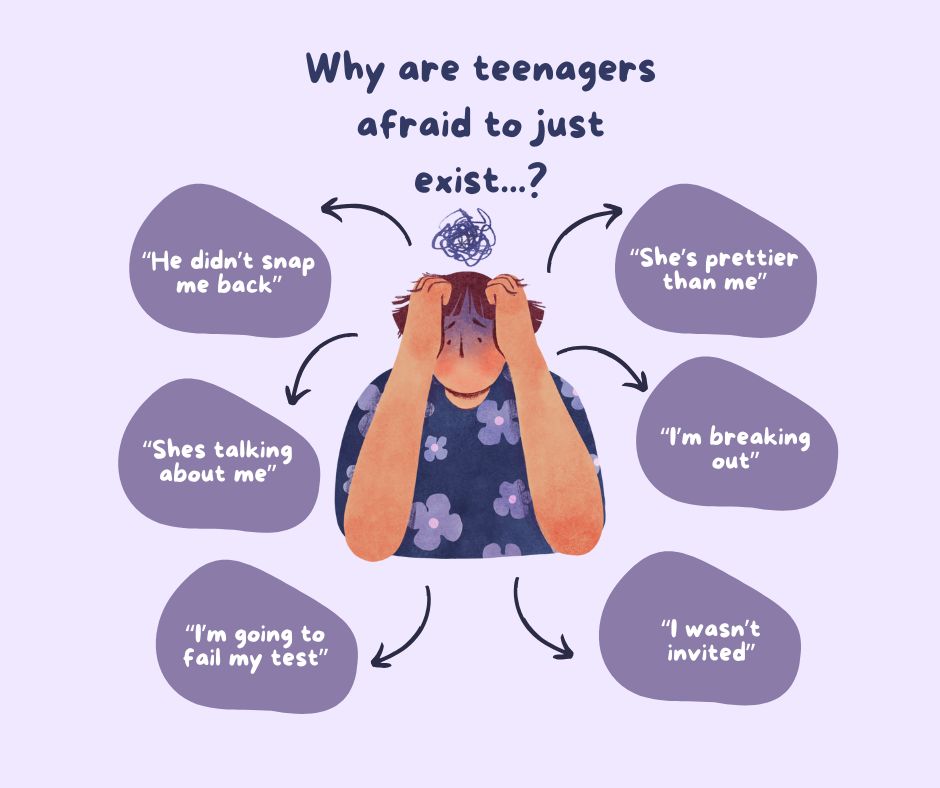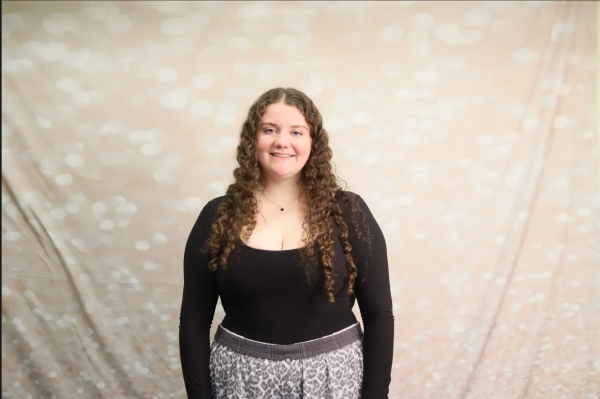It’s completely normal for anyone, especially as a teenager, to feel self-conscious sometimes; maybe you answered a question wrong in class, or tripped in the school parking lot. But for many teenagers today, self-consciousness has turned into a self-consuming issue, and more than just the occasional embarrassment. It’s the constant fear of being watched, judged, or compared to others.
The World Health Organization analyzed a rise in social media use and how it is problematic regarding teenagers’ mental health, increasing from 7% in 2018 to 11% in 2022. This ultimately raises a large concern about technology’s impact on teenagers’ mental health.
Rachael Lupone, a health teacher for all grades here at Morgan, sees it firsthand every day. “I think it’s typical to feel self-conscious as a teenager, because you’re still figuring out who you are,” she said. “But it’s gotten worse. Technology and social media have made it almost impossible to just be yourself. You’re constantly seeing what other people are doing, what they look like, and it’s hard not to compare.”
Anxiety has become a growing issue in recent years especially, it has developed in humans as a way to avoid rejection from others. While anxiety is an issue many struggle with, it’s especially prominent for teenagers, as the brain is still developing, and many are afraid of not fitting in and how others perceive them. This can make any setting, especially school hallways, classrooms, and even social media, feel very overwhelming.
Lupone says many students struggle with insecurities about body image, relationships, and just feeling as if they are “not enough”. In class, she notices many students are nervous and hesitant about doing basic things like presenting, answering questions, or even just walking in the hallway. “There’s this fear of being looked at or judged. Even eating in front of people is uncomfortable for some kids,” she explains. “It’s like being human is suddenly embarrassing”.
Social media in particular plays a significant role in the increase of anxiety today. Due to teenagers’ constant access and use of social media platforms, every day kids open their phones to filtered photos, fake lives, and misguided advice. “You’re seeing perfection that’s not even real,” Lupone says. “Even though teens know it’s edited, it’s hard not to let it affect how they feel about themselves.”
Referring back to the World Health Organization’s analysis, platforms like Instagram and TikTok can increase anxiety, especially amongst teenage girls. Many feel as if they are pressured to maintain a perfect lifestyle or feel they are in constant drama. While this is not true for every teenager, the link between technology use and anxiety is clear and growing. Lupone emphasizes the way our generation grew up, “you guys grew up this way, and don’t know any different way to experience life.”
While this anxiety may be rooted from the way we grew up, it doesn’t just stay online. It shows up in social settings, classrooms, and relationships. Students may struggle to focus, complete work, answer questions in class, or even order in resteraunts.
Junior Hope Savage opened up about her struggles in today’s world with self-consciousness and anxiety, and how social media has affected how she sees herself sometimes. She explains how social media “sets such a high standard and makes you feel like if you’re not pretty, skinny, or flawless, then you’re not worth anything. It convinces you that you need to change who you are to be liked.”
This year, Hope took a risk regarding her anxiety, auditioning for the school play Mamma Mia. She admits that before this, she “was nervous people would stereotype me or make fun of me,” and she “didn’t want to be called a ‘theater kid’ or have people judge my dancing.” Even though at times she was very stressed and anxious, she pushed through.
She explained how it wasn’t always easy to feel comfortable around the cast. “I have a goofy personality, and when I act like myself, I sometimes felt judged.” While this was a terrible feeling, she quickly realized that she shouldn’t care what people thought of her, and “once I stopped caring and holding back, I had much more fun.”
Despite how common this feeling is, many students hide their anxiety, in fear they will be seen as weak or dramatic. This concept and mindset of embracing who you are as an individual, despite how others might perceive you, is something that Lupone encourages in her health class. She explains how in class her students “do projects on mental health. We talk openly about insecurities. The more we normalize those conversations, the easier it becomes to be honest with ourselves.” This is important because “you have to love yourself to be comfortable around others.” Destigmatizing anxiety and getting students to open up about the challenges they face only makes you realize you’re not alone, and don’t need to hide who you are to be liked, just like Hope’s experience with the play.
When asked for advice she would give teens struggling with self-consciousness, Lupone said, “Control what you can. Surround yourself with people who support you. And remember, you have the power to create your reality. Positivity is just as contagious as negativity.”
Hope described this feeling with a good analogy, she explains that as teenagers we are “put in a box and expected to act normal, dress normal, eat normal. But what even is ‘normal’? You have to break that box and just be yourself. You need to find people who love and appreciate you for who you are”.
In a world full of impossible standards enhanced by the digital realm we live in, the most important thing for a teenager to do is just simply exist how they are, without having to worry about what others think of them.



